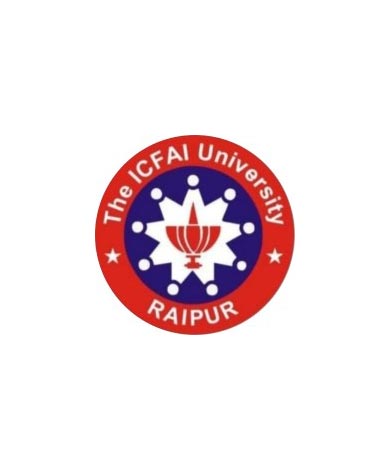Internal Quality Assurance Cell (IQAC)
Vision of IQAC Cell – The ICFAI University, Raipur
- To develop a culture of quality enhancement and assurance through consistent internal evaluation and stakeholder engagement, thereby fostering excellence in teaching, research, innovation, and institutional governance aligned with national and global standards.
Mission of IQAC Cell – The ICFAI University, Raipur
- To Promote a Quality Culture: Foster a continuous quality improvement culture in all academic and administrative activities through structured processes and best practices.
- To Ensure Stakeholder Participation: Encourage involvement of faculty, students, alumni, industry, and other stakeholders in quality assurance and enhancement initiatives.
- To Strengthen Academic and Administrative Performance: Monitor and enhance the performance of academic programs, teaching-learning processes, and administrative functions through regular audits and feedback mechanisms.
- To Facilitate Accreditation and Compliance: Prepare and support the institution in achieving national and international accreditations, rankings, and regulatory compliance.
- To Encourage Innovation and Research: Promote innovation, interdisciplinary research, and outcome-based education for holistic development and societal contribution.

Short- and long-term goals of the IQAC Cell
The Internal Quality Assurance Cell (IQAC) of an institution is responsible for the continuous improvement of academic and administrative performance. Its goals are typically divided into short-term and long-term objectives to align with the institution's mission and vision. Here's an outline:
1. Standardizing Processes:
- Establish uniform procedures for academic and administrative activities.
- Create templates and formats for documentation and reporting.
- Conduct workshops, seminars, and orientation programs to familiarize faculty, staff, and students with quality benchmarks.
- Encourage participation in faculty development programs.
- Design and implement structured feedback systems from students, faculty, alumni, and stakeholders.
- Analyze feedback and initiate corrective actions promptly.
- Maintain records of all institutional activities for accreditation and internal reviews.
- Ensure timely submission of reports like Annual Quality Assurance Report (AQAR).
- Identify and adopt best practices from peer institutions to enhance institutional performance.
- Provide support for research, project funding, and publication in reputed journals.
- Initiate interdepartmental collaborations.
1. Achieving Accreditation and Recognition
- Attain and maintain accreditations like NAAC, NBA, or ISO certification.
- Work towards ranking improvements in NIRF or international benchmarks.
- Foster a quality-centric culture across all levels of the institution.
- Develop a robust framework for the periodic review of policies and processes.
- Upgrade physical and digital infrastructure to support advanced teaching-learning methods.
- Integrate ICT tools and establish smart classrooms.
- Implement green practices such as energy conservation, water harvesting, and waste management.
- Ensure alignment with the UN's Sustainable Development Goals (SDGs)
- Strengthen alumni networks and industry collaborations.
- Facilitate placement opportunities and skill development for students.
- Encourage international collaborations and exchange programs.
- Work towards creating a global presence through joint research, conferences, and academic programs.
- Create a centralized system for storing institutional data, research outputs, and resources for future reference and utilization.